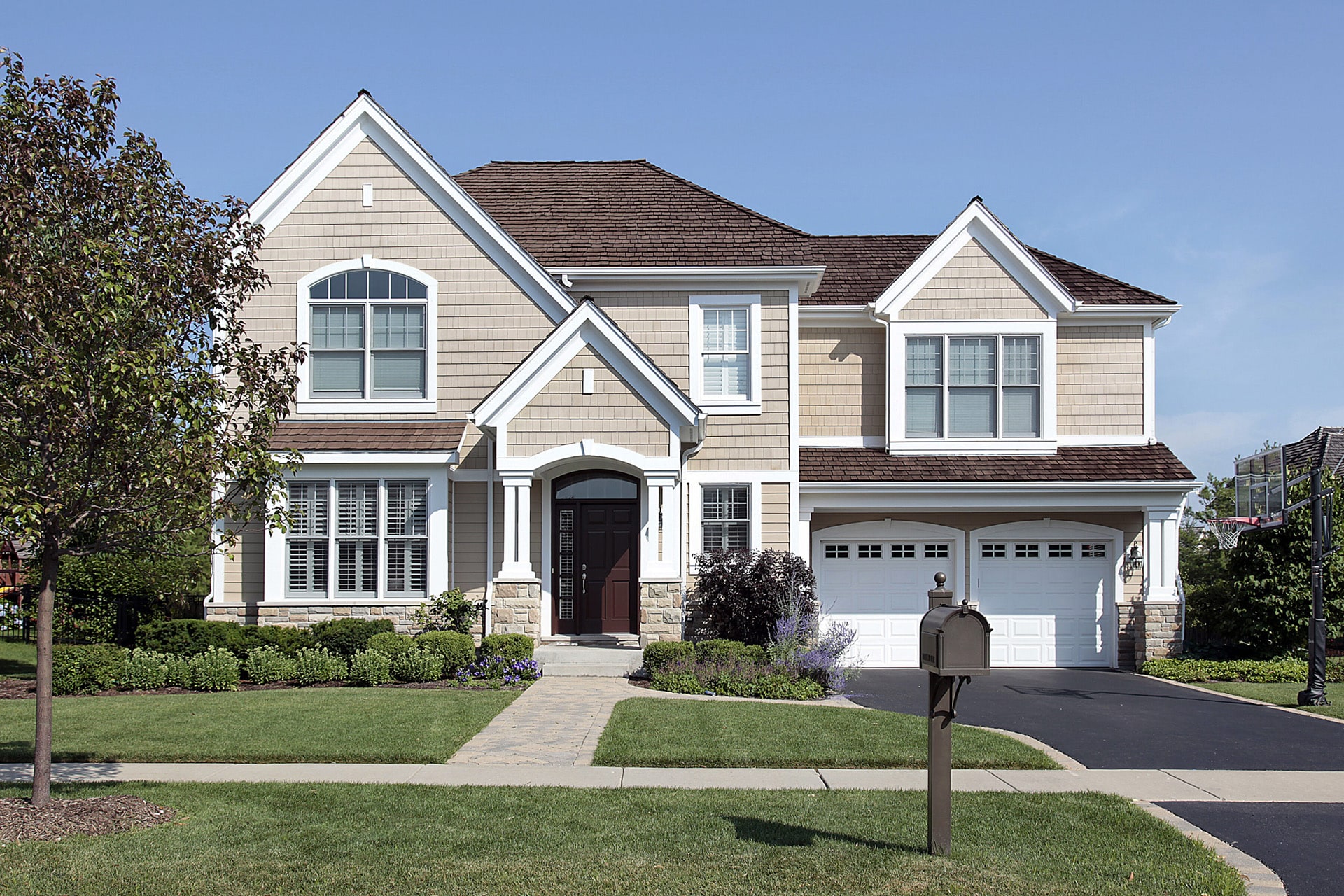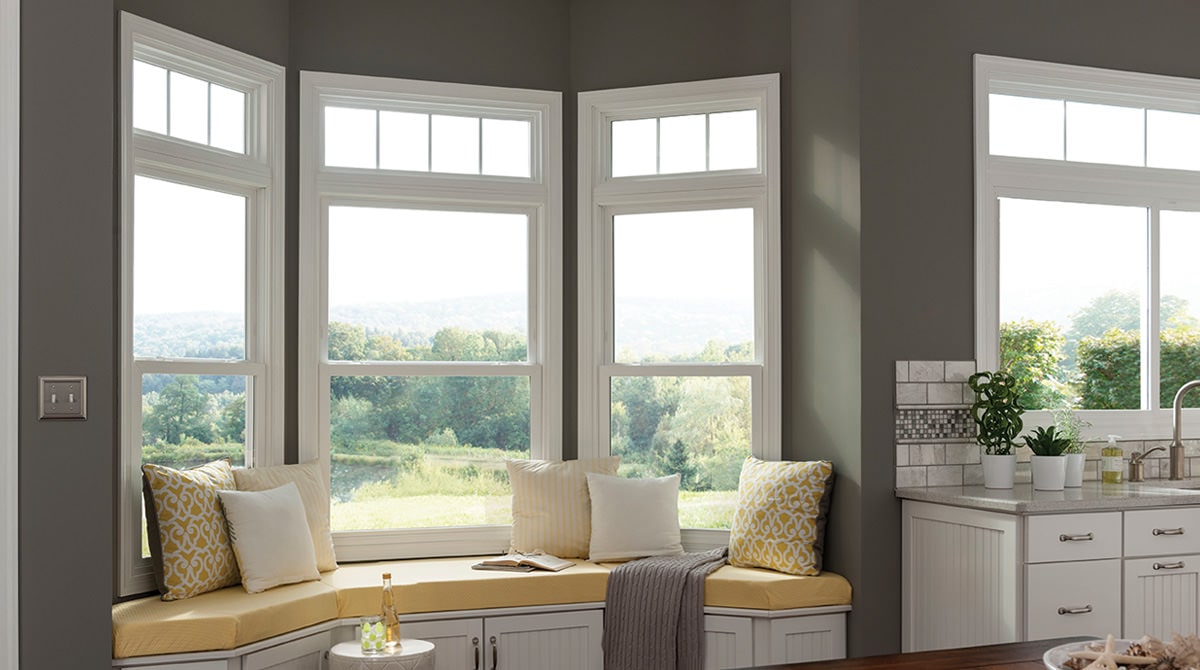In Atlanta, we’re no strangers to hot weather. And sometimes it’s hard to escape the heat, even indoors. If you’re exploring ways to make your home’s temperatures more consistent and comfortable, you may want to start with your windows. They play a large role in both your home’s comfort levels and energy efficiency.
There are two common ways to block heat coming into your home through your windows: low-E glass and heat blocking window tint. Here, we’ll break down the differences between the two and determine which is the most efficient.

What is Low-E Glass?
Low-emissivity (low-E) glass has been treated with a microscopic coating that filters certain types of light into your home. The coating on the glass blocks heat gain from the sun in warmer months and allows warmth from the sun’s shorter rays to flow into your home during cooler seasons. At Window World of Atlanta, our SolarZone Low-E glass is created by applying a microscopic, undetectable metallic coating to the second surface of an insulated glass unit.
Low-E glass is one of the most effective energy efficiency upgrades for vinyl replacement windows. Low-E coating can’t be added after installation, so the only way to get this coating is by having replacement windows installed.
The Pros of Low-E Glass
- Provides Unmatched Energy Efficiency – By blocking heat and UV rays during the summer and allowing the short rays in during the winter, your home’s HVAC system will be able to work more efficiently to keep your home comfortable. By increasing your home’s energy efficiency, you’ll reduce your carbon footprint and potentially save on your monthly energy bills.
- Performs With Multi-Pane Windows – Unlike window film, low-E glass performs well with double and triple-pane windows. Where window film can cause fogging or condensation between panes, low-E glass does not cause this issue.
- Protects Furniture and Carpet From Fading – If you’ve noticed your carpet, furniture or window treatments fading in areas that get consistent sunlight, low-E glass can help prevent future fading by filtering the majority of UV rays.
- Increases Window Durability – Even though low-E coating is microscopic, it does help increase your window’s durability.
- Available for All Window Sizes and Styles – Because the low-E coating is applied during the window manufacturing process, it is available for all window and door styles in every size.
- Adds Value to Your Home – Looking for small, budget-friendly ways to add value to your home? Opt for low-E glass in your replacement windows. Energy-efficient windows can add thousands to your home’s value.
The Cons of Low-E Glass
- More Expensive Than Window Film – Because low-E glass requires you to purchase replacement windows to experience its benefits, it is undoubtedly more expensive than window film.

What is Window Film?
Window film, also known as window tint, is an aftermarket solution that reduces the amount of heat and UV rays that enter your home. Window films are typically made of polyester laminate and further treated to filter light and UV rays. Some films visibly darken windows, while other films are nearly invisible. Heat-blocking window films can be efficient, but as we’ll see, there can be some serious drawbacks to using them.
The Pros of Window Film
- Inexpensive – Because window film can be applied to windows at any time, it is less expensive than replacement windows with low-E coating. Prices vary based on the brand and type of film you purchase.
- Easy to Find – Window films are available online and at most hardware or home improvement stores.
- DIY-friendly – While there are professional window film companies, it is possible to apply it to your windows yourself.
- Protects Furniture and Carpet From Fading – Like low-E glass, window film can help prevent your furniture, carpet and window treatments from fading.
The Cons of Window Film
- Creates Condensation in Multi-Pane Windows – If you have double or triple-pane windows, window film will only reflect heat away from one pane of glass. This leads to a temperature discrepancy between the pane with film and the remaining panes, which typically results in condensation—unwelcome in windows with wooden framing.
- Voids Your Warranty – If your windows have a warranty from your installer or manufacturer, applying aftermarket window film will almost certainly void it completely.
- Variable (Potentially Expensive) Pricing – While window film is inexpensive when compared to a new set of replacement windows, the cost can quickly climb higher than you initially expected—especially in a many-windowed home.
- Difficult to Apply to Unconventionally Shaped Windows – Do you have custom windows in your home? Applying window film to unconventional shapes is difficult and can leave your windows looking shoddy.
- Application May Be Semi-Permanent or Permanent – While temporary window films are available, most are semi-permanent (will leave residue on your windows) or permanent (impossible to remove). When the film stops performing, it will be difficult or impossible to remove, leaving you with ineffective film on your windows.
- Impacts Your Window’s Appearance – Even with clear window films, you’ll notice a slight difference in the way your windows look. And if the film becomes scratched, you’ll notice it immediately.
Low-E Glass vs. Window Film: U-Values
An important component of glass performance is the U-value, which rates the insulation capacity of the glass. The value typically ranges from 0.1 to 1.0; if a window has a low U-value, it allows for less air transfer and therefore better insulates your home.
Low-E glass U-values range from o.02 to 0.20, which means rooms with low-E windows could retain up to 98% of their hot or cool air. By contrast, window film U-values range from 0.7-0.81—rooms with film-covered windows may only retain up to 30% of their hot or cool air.
The Winner: Low-E Glass
If you’re in the market for replacement windows, opting for windows with low-E glass is by far the best way to block the heat and UV rays coming into your home through your windows. Low-E glass combined with our light and durable vinyl frames allow you to enjoy energy-saving benefits you simply cannot achieve with window film alone.
The right windows—with superior pane technology—can help stabilize your home’s temperatures year round, increasing its energy efficiency and potentially lower your energy bills. Window World can help make your Atlanta home more comfortable all year long. Get started by requesting your free estimate today!